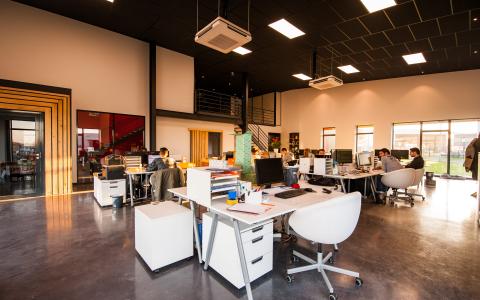
Remote working has become the new norm for many white-collar workers, but their bosses are still not on board. Instead of embracing this shift, some employers have resorted to strict mandates and punitive policies to force employees back into the office. Dell is a prime example of this approach.
In February, Dell introduced a return-to-office (RTO) mandate, requiring employees to formally classify themselves as either hybrid or remote. Those who chose to remain remote found themselves ineligible for promotions or role changes. Hybrid workers, on the other hand, were required to come into the office 39 days per quarter—roughly three days a week—and their attendance was monitored using a color-coded system.
Months after this policy was implemented, it appears to have been ineffective. Internal data seen by Business Insider reveals that nearly 50% of Dell's full-time employees in the US have opted to stay remote. These employees are now ineligible for promotions unless they change their classification. Internationally, around a third of Dell's staff chose to remain remote as well.
Despite repeated inquiries from Business Insider, Dell did not respond to specific questions about the data but maintained that "in-person connections paired with a flexible approach are critical to drive innovation and value differentiation." Although this data isn't available to all Dell employees, many confirmed that at least half of their team had chosen to stay remote.
"My team is spread out around the world, and almost 90% of us have opted to stay remote because there was no real advantage in going to the office," one employee explained.
Eleven employees from various departments, including sales, tech support, engineering, and HR, shared their reasons for opting for remote work despite losing career progression opportunities. They requested anonymity due to company policies prohibiting media interaction.
The Benefits of WFH
For many Dell employees, the personal and financial benefits of working remotely were too significant to sacrifice. One employee shared that since 2020, working from home had contributed to substantial personal growth, which they were not willing to give up.
Prior to COVID-19, their life revolved around home and work, leaving little time for other activities. Like many others, the shift to remote work during the pandemic allowed them to spend more time with family, explore hobbies, and socialize outside the workplace.
"The more time I spend in the office, the less time, money, and personal space I have for those activities. I can do my job just as well from home while enjoying these personal benefits," one employee said.
Another pointed out the financial implications, stating, "With our current salary, a return to the office would significantly impact our budget due to commuting and meal expenses."
Some Workers Have 'No Office to Return To'
Several employees had no choice but to classify as remote because nearby offices were either shut down or too distant to commute to. "Dell closed down the facility I worked at in 2020, so I have no office to return to," one worker explained.
With teams spread across multiple states and time zones, some employees felt that going to an office was pointless. "The work I do doesn't really involve a team, and the people I work with most are at different sites," one employee said.
Another employee, part of a global team, emphasized the need for flexibility: "I'm not going to work eight hours in a Dell office and then come home and work three more hours in meetings with colleagues in India or Malaysia."
Despite these concerns, there has been no response from HR on how the new policy restricts the team. Many employees noted that hybrid colleagues have reported near-empty offices in some locations.
"My meetings are now with people in different conference rooms across the country by themselves," a remote employee commented. "The reality of this policy is dumb."
At a company town hall, some staff questioned the logic behind the policy, only to be told by COO Jeff Clark that office work allows for the spread of knowledge among employees. Clark did not respond to a request for comment from Business Insider.
'A Meaningless Threat'
Several senior employees stated that the threat of no promotions was meaningless because they had already advanced as far as possible unless they wanted to move into management. "I've got nothing left to get promoted to unless I want to get into management," one senior engineer said.
A junior employee noted that promotion opportunities have been scarce in recent years, making the threat of losing promotions less impactful. "I know a few people who might have been deterred from staying remote due to the promotion threat, but since there haven't been any opportunities, they saw it as a meaningless threat."
In its latest fiscal year results, Dell reported annual revenue of $88.4 billion, a 14% decline from 2023 and below pre-pandemic earnings. For the first quarter of its 2025 fiscal year, the company reported $22.2 billion in revenue, up 6% from the same quarter the previous year.
As Dell's new working culture sets in, many employees told Business Insider they are considering leaving the company. "Every mom I talk to at Dell says they are looking for other jobs because they need remote work," one employee said.
Another employee mentioned that they were actively seeking new opportunities and would leave Dell as soon as they found a suitable position. "Before this whole fiasco, I wouldn't have considered going somewhere else," they added. "Being a second-class citizen doesn't leave you any career opportunities."



